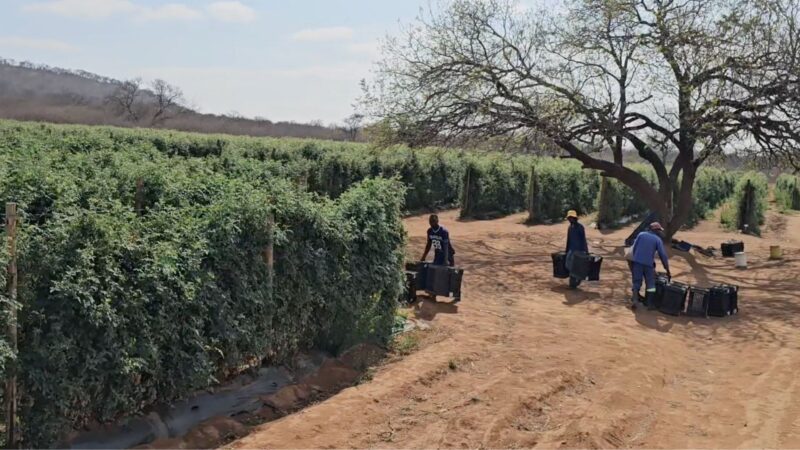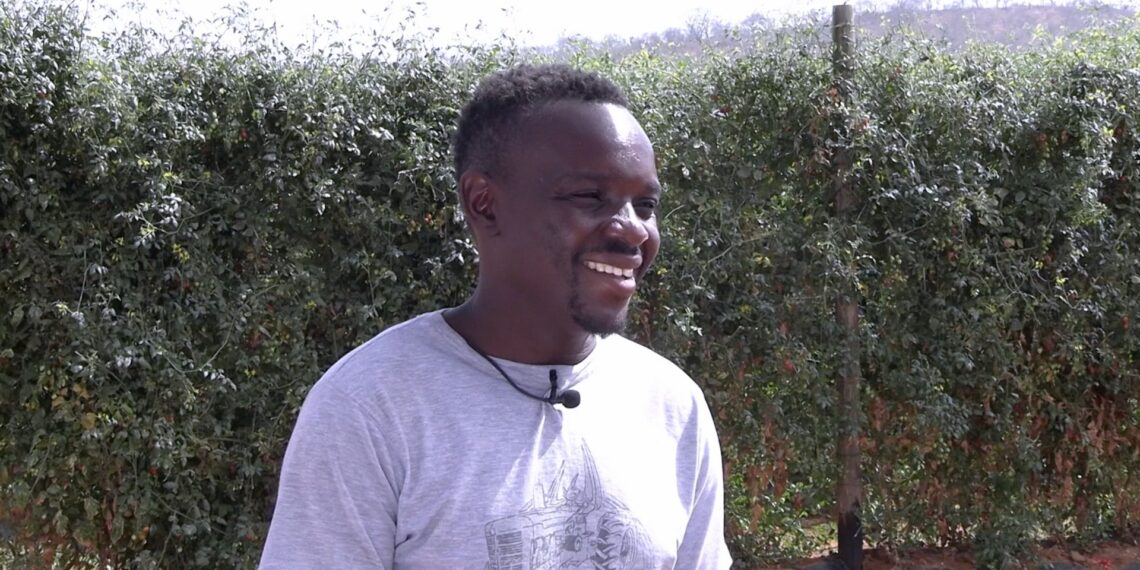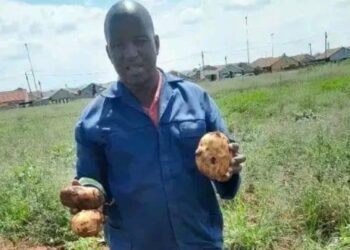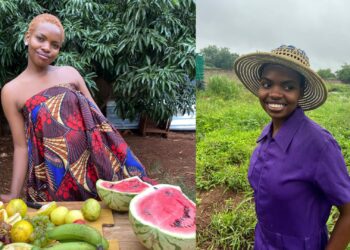Farming is a journey of resilience and constant learning, and few embody this truth better than Craig Mashimbye. From humble beginnings and financial struggles to farming on 504 hectares of land, Mashimbye is leading a thriving enterprise in Mooiwater, Limpopo.
His success did not come easily. Supported by partnerships, grants, and his own determination, Mashimbye has expanded his farming business into a diversified enterprise operation that not only sustains his family but also creates opportunities for his community.
For Mashimbye, farming is a calling. “It’s the love of the soil, actually. Our uncle, he was the one who was doing farming in our community. I grew up seeing him. He would call us and teach us how to farm tomatoes. So, when that farm collapsed in 2006, I started to do the farming.”
His roots run deep, with early guidance from his extended family. “My father drilled the borehole at home, and it’s when I started with spinach.”
Early struggles and a breakthrough
Like many small-scale farmers, Mashimbye faced serious financial challenges, but if you’re willing to work hard, the rewards will come.
“I was always wishing to have somebody who can help me. So the Kagiso Trust came in with R300 000, which helped a lot in our farming. We managed to expand, with these poles actually, and a lot of stuff, like the boreholes,” Mashimbye shares.
Related stories
- Jobless graduate turns EC homestead into opportunity hub
- Limpopo teen farmer finds purpose and passion in the fields
- African farms hold the key to global food security
- Exports up, jobs down: Why agri-trade leaves rural workers behind
In 2020, he found renewed hope through a partnership with a supply and development company. He explained that the Supplier Development Hub and Kagiso supported him both financially and with technical advice, even subsidising transport and other needs.

Farming with the community
Having grown up on the farm himself, he maintains a strong bond with the local community. While Spar buys only the baby corn, other produce such as full-sized maize and green beans is sold locally, ensuring the community also benefits from the farm’s output.
“The friendship between the community and us is very good. It’s mutually benefiting because they come in to work, we are getting something, and we are selling something to them,” he says.
Supplying baby corn to Spar requires strict compliance with specifications and Mashimbye has worked hard to meet these requirements.
“There are a lot of things they expect from us, especially the specs and the size of the tomatoes, which we must stay focused on. So we are doing a lot here to meet those requirements. We do our pruning properly, starting early to make sure there is good airflow, which helps keep pests away. For irrigation, we are also getting a lot of technical advice from Spar.”
Hard work pays off
Winning an award from Kagiso Trust gave Mashimbye a timely boost. “The award came at a good time, because for the past three years we had only one hectare. When I got that grant, I managed to expand on the hectare, which helped us multiply our profit. The turnover that we are gaining from that grant — this year, we are aiming to do 3.5 turnover. The grant came at the right time,” he shares.
This year, his farm is producing five hectares of baby corn, one hectare of tomatoes, and six hectares of green beans.
Mashimbye’s farm is also a key source of employment. He shares that they currently have 33 workers in total, with 28 employed permanently; 14 women and 14 men. The men remain year-round, as some handle security while others operate irrigation systems, while the remaining staff are hired on a seasonal basis.
Diversifying into game and livestock
Mashimbye has combined crop farming with livestock and game farming. Although he initially aimed to focus on livestock, crops now form the core of his enterprise. While he successfully manages cattle and sheep, goats proved to be challenging.
He is currently working on a breeding programme for his Angus and Brahman herd. He believes that patience and focus in farming attract support and opportunities at the right time.
“Farming must be balanced; you can’t rely only on crops because crops are seasonal. That’s why I believe in doing game farming, cattle, and crops. There must always be a balance.”
Even with the growth, water continues to be a major challenge. He explained that they rely on a soil dam, but having a proper dam with measuring capacity would help determine exactly how many hectares they are able to irrigate.
“For now, we just wake up going to the soil dam, we don’t know how much water is going to evaporate. Without water, we are nothing. Water is holding us back.”
Security is essential due to past poaching and theft. “We used to have wildebeest here but we can say it’s a blessing in disguise — we don’t have them anymore because of poachers. We lost a lot of cattle because of the poachers. We still have some kudus and impalas, but no wildebeest. That’s why we need security all the time.”
Mashimbye believes building an office is important for welcoming visitors and hosting meetings, though he prefers spending most of his time outdoors. As a “soil boy,” he values being on the field over being inside an office.
Reflecting on his journey thus far, Mashimbye shares: “In farming you must be ready to learn. Every season comes with something. You mustn’t be someone who knows everything.”
READ NEXT: Growing onions: Tips for a successful harvest

















